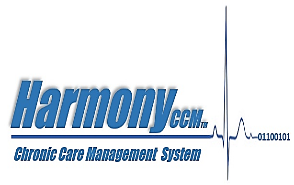Chronic Care Management (CCM) / Principal Care Management (PCM) Services
Studies have proven that patients engaged in clear and frequent communication with their Physician or healthcare professionals are more likely to follow care recommendations, appropriately monitor their health condition, and alert providers with relevant medical issues to avoid critical healthcare episodes. Medicare offers two reimbursable programs targeted to address providing non-face-to-face patient care tasks and time associated with chronic disease patient populations – Principle Care Management (PCM) and Chronic Care Management (CCM) Services. In the past few years, many leading healthcare systems and provider practices have dedicated resources and staff to offer and provide care management services to focus on patient engagement for their most at-risk chronic disease patient populations.
Patients and Physician Provider Benefits
Patients – CCM and PCM services are proven to provide significant benefits for patients with chronic disease through:
- Fewer unnecessary clinic visits
- Reduced ER/hospital admissions and re-admissions
- Reduced overall health care costs
Providers – Physicians or qualified healthcare providers can also realize significant benefits from implementing care management services for their patients with chronic disease through:
- Reduced patient and data administration burden
- Reduced ER/hospital admissions and re-admissions
- Improved clinic workflow
- Increased services reimbursements
- Increased patient satisfaction and patient retention

Providing Chronic Care or Principal Care Management Services with WSP
Medicare requires the documentation of at least one chronic condition (PCM), or two or more chronic conditions (CCM), for patients to qualify for Care Management Services. A disease-specific care plan must be implemented and a minimum of 20 (CCM) or 30 (PCM) minutes documented per month of non-face-to-face patient care contact or tasks associated with patient care plans are needed to qualify for monthly services reimbursement.
WSP can provide your clinic with the necessary patient care staff, patient-centered care plan, device monitoring technologies, and patient management/tracking software systems and support for your clinic to implement and provide CCM or PCM services for your patients with chronic disease conditions.

One Platform for Patient Care Plans and Time/Activity Tracking
WSP streamlines patient care plan management and follow-up contact administration and contact/activity tracking. Our cloud-based patient management and reporting system integrates patient care plans, patient contact schedules, and care plan activity/tasks tracking on ONE platform for efficient patient management and a standardized time/activity reporting platform.
One system for all CCM and PCM services!

Health Care Certified Management and Care Specialist Staff
WSP patient care services management are experienced veterans of the healthcare industry. WSP clinic’s dedicated patient care specialists are all highly experienced in various therapeutic and care delivery specialties. This includes Cardiology, Endocrinology, Pulmonology, etc.

Protocol-Driven Patient Contact, Care Plan Reporting, and Communication
All WSP CCM and PCM services are operationally guided by your unique, clinic-defined patient care plans, reporting requirements, and patient management protocol to ensure your Physicians and clinic staff receive patient reports and notifications on how and when you want them.

Monthly Device Patient Contact and Support
WSP’s clinic-dedicated patient care specialists schedule and contact your device patients monthly to provide Medicare reimbursable care plan coordination support. WSP patient care specialists document, track, and report all patient contact, monthly care plan review responses, and health status events (i.e., ER Visit) to your clinic staff to keep Physicians and patients engaged and to provide better patient care.

Billing and Follow-Up Tracking Support
CCM and PCM services reimbursement claims tracking and processing is challenging. WSP provides proven, system-driven patient care plan contact and time/activity report tracking to ensure your clinic captures all allowable care services reimbursement claims. WSP provides accurate monthly reimbursement claims reports and support for clinic business or reimbursement departments for efficient month-end claims processing to avoid missed billable service events, reduce claims denials, and keep your CCM/PCM program on financial track.

Better Patient Care
Chronic Care Management and Principal Care Management services with WSP is proven to provide and result in:
- Fewer unnecessary clinic visits
- Increased clinic awareness of patient health condition status
- Reduced time to diagnosis
- Reduced hospital/ER admissions
- Improved patient safety
- Increased access to technical, clinical and educational support
- Reduced patient health care costs through preventative care
- Increased patient satisfaction with clinic/healthcare services

Better Clinic Management
Chronic Care Management and Principal Care Management services with WSP is proven to provide and result in:
- Reduced patient and data administration burden
- Reduced unnecessary patient office visits
- Reduced clinic administrative expenses
- Improved, streamlined patient reporting and workflow
- Improved patient follow-up frequency & care plan compliance
- Improved patient health condition awareness
- Less time to event diagnosis and treatment
- Reduced hospital/ER admissions
- Increased services reimbursements
- Decreased patient safety liability
- Increased patient satisfaction and retention




